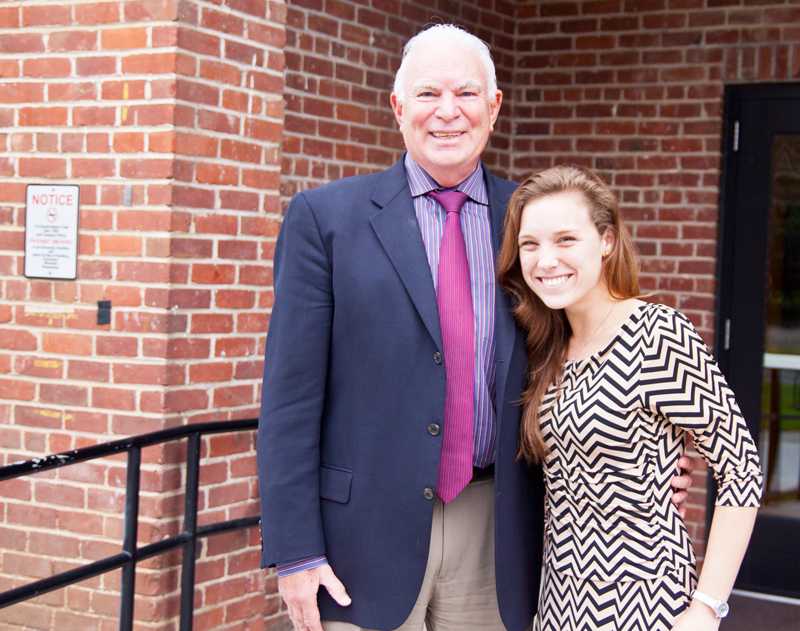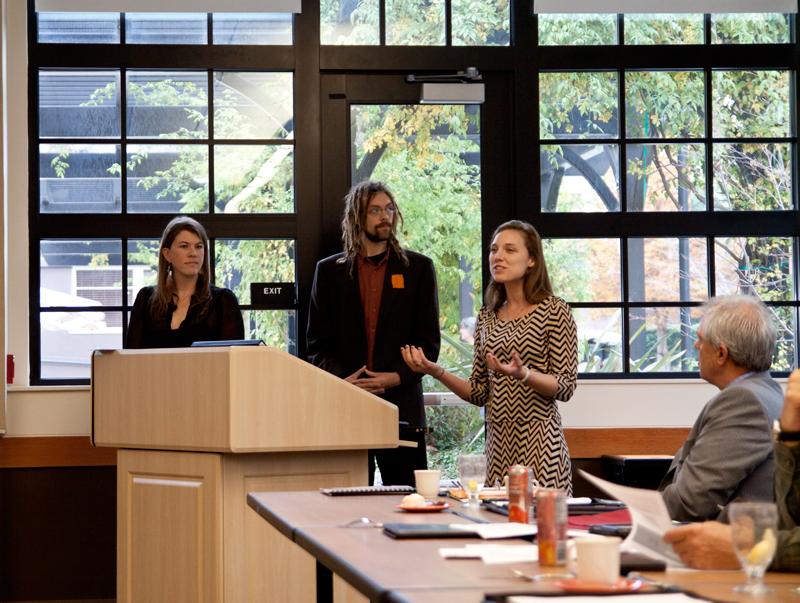
Chico State propelled itself to the forefront of the divestment movement by becoming one of the first public universities to completely divest from fossil fuels.
The University Foundation Board of Directors passed a resolution Wednesday to proceed with the removal of foundation investments from the top 200 public coal, oil and gas companies within the next four years.
The resolution is especially significant because it excludes both direct and non-direct investments in fossil fuels. This will require foundation financial advisors to meet on an annual or semi-annual basis to make sure investments in mutual funds do not include fossil fuel companies, foundation financial advisor Chris Van Dyke said in the meeting.
Other California State Universities have taken similar positions in the divestment movement. In May, San Francisco State’s university foundation voted to remove direct investments from coal and tar sand producing and refining companies. In November, Humboldt State’s foundation pledged to monitor and limit its mutual fund investing in fossil fuel companies.
Associated Students President Taylor Herren, one of the champions of Chico State’s divestment movement, said she is grateful to have the support of the students and administration throughout the process.
“I am so proud of my institution,” she said. “To have an opportunity to partner and be supported is really exciting.”

University President Paul Zingg said the pace of the resolution may not have been as quick or as urgent as some may have liked, but the direction and purpose is clear about where the university is headed.
“This did not come in a vacuum,” he said. “It has been part of the fiber of this university for many years. It’s interesting that we’ve had the tests of the fiber with the climate commitment, the strategic plan point on sustainability, over and over again, and now we’ve basically passed that test.”

Kevin Killion, A.S. Sustainability education outreach committee member, said he was pleased with the way the foundation voted. He, along with Kaitlin Haley, former A.S environmental affairs commissioner, and Herren, gave a presentation to the board of directors on why the university should choose to divest.
“I am ecstatic,” Killion said. “It’s been a long campaign and that we’re here today is incredible. (The vote) really shows the value of how strong our university foundation and student voice is here at Chico State. It’s incredible to see this actually working.”
In April, 3,783 students, 23 percent of the student population, voted in the Associated Students spring elections. Eighty percent of the recorded votes supported divestment.
While the foundation holds no direct investments of fossil fuel companies, approximately 1.5 percent of its portfolio is invested in mutual funds that contain stock from these companies.
Tod Kimmelshue, chairman of the finance committee and one of the dissenting votes, applauded the effort of the students who pushed for divestment but said there are other factors to consider.
“I believe that people donated to our foundation to further higher education,” he said. “I believe it is our fiduciary responsibility to do the best we can with those funds. By taking one of tools out of our toolbox, I believe, it is a disservice to our investors.”
Van Dyke said the foundation will assume new costs with the move to a divested portfolio.
“One of the larger offenders is a fund that represents $6 to $6.5 million (of the university’s total endowment) and the fees currently charged per year are about $3,000. If we were to move to a fossil fuel exclusion fund, it will cost anywhere from $23,000 to $30,000. That’s an additional cost (to the university) and money that may not go to additional scholarships.”
Zingg said the foundation’s finance committee will now meet to develop a financial investment plan that will be free of fossil fuel companies.
David McVicker can be reached at newseditor@theorion.com or @DavidPMcVicker on Twitter.





